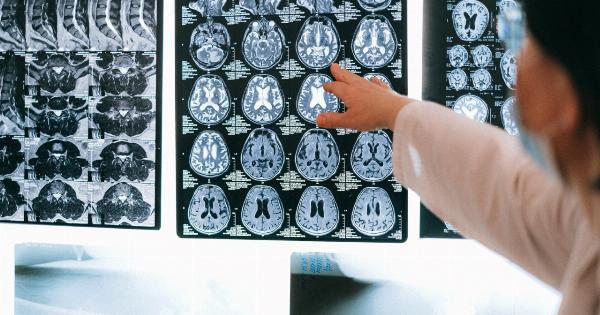Hand tremors are involuntary movements that occur in the hands. They can range from mild to severe and can significantly affect a person’s ability to perform daily tasks.
While hand tremors are commonly associated with conditions such as Parkinson’s disease and essential tremor, there are other lesser-known causes that can also lead to these tremors. In this article, we will explore some of these other causes and shed light on their symptoms, diagnosis, and treatment options.
1. Medications
One of the primary culprits behind hand tremors is the side effects of certain medications. Some drugs such as beta-blockers, used to manage conditions like hypertension, can induce tremors as a side effect.
Likewise, certain antidepressants, antipsychotics, and anti-seizure medications can also cause hand tremors. If you notice a sudden onset of hand tremors after starting a new medication, it is essential to consult with your healthcare provider to discuss potential alternative options.
2. Hyperthyroidism
Hyperthyroidism, a condition characterized by an overactive thyroid gland, can also lead to hand tremors. The excessive production of thyroid hormone can disrupt the normal functioning of the body, leading to various symptoms, including tremors.
Proper diagnosis and treatment of hyperthyroidism are crucial to alleviate hand tremors associated with this condition.
3. Multiple Sclerosis
Multiple Sclerosis (MS) is a chronic autoimmune disease that affects the central nervous system. While it is widely known for causing physical disabilities, it can also manifest as hand tremors in some individuals.
The tremors associated with MS tend to be more pronounced during movement and can affect one or both hands. If you have been diagnosed with MS and experience hand tremors, it is advisable to consult with your neurologist for a comprehensive evaluation and appropriate management.
4. Stroke
A stroke occurs when the blood supply to the brain is interrupted, leading to damage in specific areas. Depending on the location of the brain affected by the stroke, a person may experience hand tremors.
Tremors caused by stroke are usually accompanied by other neurological symptoms, such as weakness or paralysis on one side of the body. Swift medical attention is crucial in cases of stroke to minimize potential complications and maximize recovery.
5. Traumatic Brain Injury
Hand tremors can also be a consequence of traumatic brain injury (TBI). Injuries to the brain can disrupt the normal communication between nerve cells, leading to various neurological symptoms, including tremors.
Individuals who have sustained a TBI should undergo a thorough evaluation to assess the extent of the injury and determine appropriate treatment options.
6. Alcohol Withdrawal
Hand tremors can also manifest as a result of alcohol withdrawal. Chronic alcohol consumption can lead to changes in the brain, and sudden withdrawal can cause tremors, among other withdrawal symptoms.
These tremors are often referred to as “alcohol withdrawal tremors” or “the shakes”. If you or someone you know is experiencing hand tremors during alcohol withdrawal, seeking medical assistance is crucial to manage the symptoms safely.
7. Essential Tremor
While essential tremor is relatively well-known, it is worth mentioning as it is often mistaken for other causes of hand tremors. Essential tremor is a neurological disorder characterized by involuntary trembling of the hands, head, or voice.
The tremors associated with essential tremor are rhythmic and tend to worsen with movement or stress. Currently, there is no cure for essential tremor, but certain medications and therapies can help manage the symptoms.
8. Anxiety and Stress
Psychological factors such as anxiety and stress can also trigger hand tremors. When the body is in a state of heightened anxiety, it undergoes physiological changes, including increased muscle tension.
This tension can manifest as hand tremors or shaking. By addressing the underlying anxiety or stress, the hand tremors can often be alleviated. Techniques such as relaxation exercises, therapy, and stress management strategies can be beneficial in managing this type of tremor.
9. Brain Tumors
Although rare, hand tremors can sometimes be an early symptom of a brain tumor. The tumor’s location in the brain and the pressure it exerts on surrounding structures can lead to tremors and other neurological signs.
It is vital to consult with a healthcare professional if you experience persistent hand tremors along with other unusual symptoms to rule out any underlying health conditions, including brain tumors.
10. Wilson’s Disease
Wilson’s disease is a rare genetic disorder characterized by the body’s inability to metabolize copper properly. The accumulation of copper in various organs, including the brain, can lead to a range of symptoms, including tremors.
Hand tremors caused by Wilson’s disease often appear as intentional or “action” tremors, meaning they occur during purposeful movement. Treatment for Wilson’s disease typically involves the use of medications to remove excess copper from the body.
Conclusion
While Parkinson’s disease and essential tremor are well-known causes of hand tremors, there are various other factors that can lead to these involuntary movements.
It is important to recognize that hand tremors can be a symptom of various underlying conditions, including medication side effects, hyperthyroidism, multiple sclerosis, stroke, traumatic brain injury, alcohol withdrawal, essential tremor, anxiety and stress, brain tumors, and Wilson’s disease.
If you or someone you know is experiencing hand tremors, it is crucial to seek medical attention for a proper diagnosis and appropriate treatment.
A thorough evaluation by a healthcare professional can help uncover the underlying cause of the tremors and facilitate the development of an effective management plan to improve quality of life.






























